AYO / “Neva Been”
We’re going to take our time getting into this. Going to take the long way around, so settle back, hit the jukebox, get an appropriate libation and relax in an easy chair. (Or, if you're at work, as easy as you can).
A number of folk have asked my opinion of Ayo, including my youngest daughter who called long distance to inquire. I had had Ayo's album for a year and although I thought it was cool, it didn’t fire me up. But when I did a little research on her last year, I was reading some things that made me withhold judgment, especially I saw a video of her live which was strong, strong. I said there is probably something here, something more than captured on the CD.
Fast forward. I’ve got at least four or five live concerts with her quintet and man, am I high on this! Ayo is a monster.
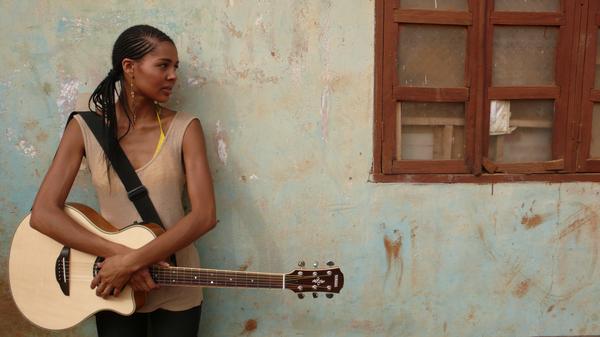 I had been toying with doing something on Afropeans (black folk of mixed heritage, African and European) or maybe Afro-Germans, specifically. Joy Denalane was already one of my favorites. We had dropped some Zoe a while back and then there was this young sister Nneka who was making some noise. And, oh yeah, Ayo.
Along the way to researching that, I got deeper into Ayo and that’s all I thought I was going to write about. Except it got a little deeper. Seems she is hooked up with an Afro-German reggae artist named Patrice, who is very popular in Germany and France (like, selling out concerts in major venues popular).
And Ayo’s big single had been “Down On My Knees,” a quintessential begging song. So what gives? I wondered. I saw this was going to get whale-shit deep.
I had been toying with doing something on Afropeans (black folk of mixed heritage, African and European) or maybe Afro-Germans, specifically. Joy Denalane was already one of my favorites. We had dropped some Zoe a while back and then there was this young sister Nneka who was making some noise. And, oh yeah, Ayo.
Along the way to researching that, I got deeper into Ayo and that’s all I thought I was going to write about. Except it got a little deeper. Seems she is hooked up with an Afro-German reggae artist named Patrice, who is very popular in Germany and France (like, selling out concerts in major venues popular).
And Ayo’s big single had been “Down On My Knees,” a quintessential begging song. So what gives? I wondered. I saw this was going to get whale-shit deep.
Here’s the thumbnail bio on Patrice:
Patrice Bart-Williams (born July 9, 1979 in Kerpen to a German mother and the Sierra Leonean writer-activist Gaston Bart-Williams), better known as Patrice, is an Afro-German reggae artist. He also often uses his second name: Babatunde (Yoruba for "return of the father"), which his parents gave him because Patrice was born on the same day that his grandfather died. His music is influenced by Jimi Hendrix and Bob Marley.
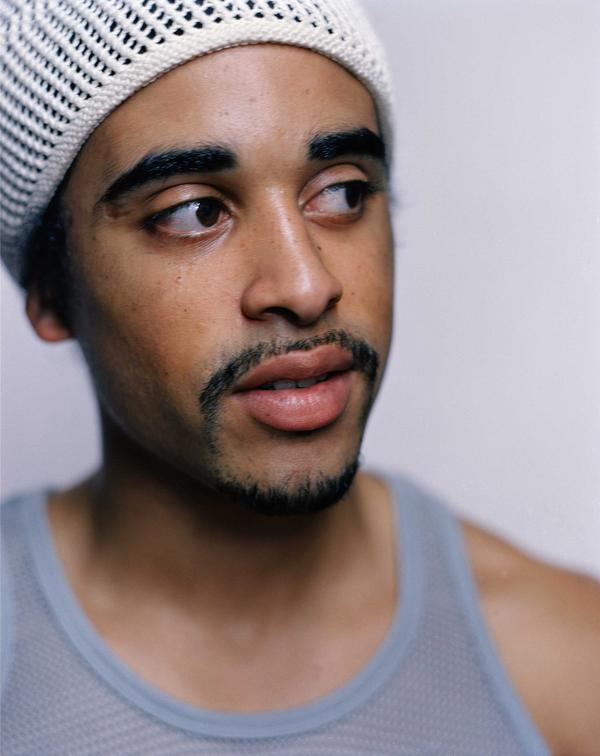 His music has an enticing edge to it. His voice sounds something like what Prince might sound like if he was Jamaican or Nigerian doing that pidgin English thing. It’s reggae but it’s got some rhythm twists in there that come straight out the motherland via Germany. The exile always longs for the wholeness of union with the root; but though digging the roots, the deeper truth is that the tree is planted in foreign soil, so the resulting fruit has a different taste and texture.
His music has an enticing edge to it. His voice sounds something like what Prince might sound like if he was Jamaican or Nigerian doing that pidgin English thing. It’s reggae but it’s got some rhythm twists in there that come straight out the motherland via Germany. The exile always longs for the wholeness of union with the root; but though digging the roots, the deeper truth is that the tree is planted in foreign soil, so the resulting fruit has a different taste and texture.
 “Here Again,” the opening cut taken from Patrice’s latest album, Nile, features Nigerian musician Keziah Jones dueting with Patrice. Listen to those field hollers echoing each other and then sliding into falsetto. Two males singing in the treble clef. I was just checking out a video documentary on Curtis Mayfield and The Impressions, and The Impressions had been talking about singing falsetto, which was their trademark—so you know how I reacted when I heard this Patrice/Keziah duet. Notice that it’s just them and their guitars. A true duet. Sweet, my brothers. Sweet.
The next track, “Gun,” (also from Nile) is a dread vision that most black men I know have dreamed at least once or twice in their life, especially after an encounter with officers of the(ir) peace. “I wish I had the gun ‘cause I don’t want to have to talk to them.” And then my man adds, “Don’t get me wrong, I know it’s wrong but I don’t want to have to talk to them.” I know the feeling. I know the feeling.
Oh, by the way, talk about broken beat: listen to that snare throughout. It’s a curious mix. Very spare. Not even a whole drum kit. More voices than instruments… and of course the sound effect of a pistol. Not the shot but the cocking of the “Gun.” This is an interesting way to put together this kind of song. Not that wall of heavy sound common in a lot of rap, thickness dripping menace. This is no reveling in violence, indeed, it’s almost a plea to be left alone rather than a threat; a prayer for release.
“Love” is from the Ancient Spirit album and is a cross between reggae and jazz, an interesting cross. And right behind it comes “Same Ol Story” from Free-Patri-Ation and featuring Ayo on second vocals. These two cuts suggest a strong conflict: words of love but descriptions of conflict, of contradiction. Neither song sounds like a song of satisfaction. Things falling apart even as we try to hold on. Invocations of unity but the pieces are scattered, or at least that’s the way it sounds to me.
“Here Again,” the opening cut taken from Patrice’s latest album, Nile, features Nigerian musician Keziah Jones dueting with Patrice. Listen to those field hollers echoing each other and then sliding into falsetto. Two males singing in the treble clef. I was just checking out a video documentary on Curtis Mayfield and The Impressions, and The Impressions had been talking about singing falsetto, which was their trademark—so you know how I reacted when I heard this Patrice/Keziah duet. Notice that it’s just them and their guitars. A true duet. Sweet, my brothers. Sweet.
The next track, “Gun,” (also from Nile) is a dread vision that most black men I know have dreamed at least once or twice in their life, especially after an encounter with officers of the(ir) peace. “I wish I had the gun ‘cause I don’t want to have to talk to them.” And then my man adds, “Don’t get me wrong, I know it’s wrong but I don’t want to have to talk to them.” I know the feeling. I know the feeling.
Oh, by the way, talk about broken beat: listen to that snare throughout. It’s a curious mix. Very spare. Not even a whole drum kit. More voices than instruments… and of course the sound effect of a pistol. Not the shot but the cocking of the “Gun.” This is an interesting way to put together this kind of song. Not that wall of heavy sound common in a lot of rap, thickness dripping menace. This is no reveling in violence, indeed, it’s almost a plea to be left alone rather than a threat; a prayer for release.
“Love” is from the Ancient Spirit album and is a cross between reggae and jazz, an interesting cross. And right behind it comes “Same Ol Story” from Free-Patri-Ation and featuring Ayo on second vocals. These two cuts suggest a strong conflict: words of love but descriptions of conflict, of contradiction. Neither song sounds like a song of satisfaction. Things falling apart even as we try to hold on. Invocations of unity but the pieces are scattered, or at least that’s the way it sounds to me.
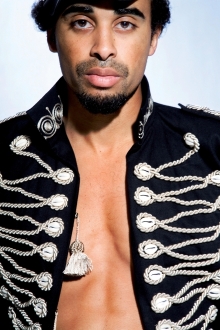 Then comes “Be Your Man” from Nile. Nile is also the name of the man-child that Patrice and Ayo had together. Nile is with Ayo, they currently live in New York. I listen to these here words and him say love never shot him with no arrow but with a forty-five.
But enough psycho-babble for the moment (yes, we will return to this when we get to Ayo). I plan to get to a closer listen to Patrice’s music. But the truth for right now is that I came to it as a result of checking Ayo and right now I much prefer Ayo.
Then comes “Be Your Man” from Nile. Nile is also the name of the man-child that Patrice and Ayo had together. Nile is with Ayo, they currently live in New York. I listen to these here words and him say love never shot him with no arrow but with a forty-five.
But enough psycho-babble for the moment (yes, we will return to this when we get to Ayo). I plan to get to a closer listen to Patrice’s music. But the truth for right now is that I came to it as a result of checking Ayo and right now I much prefer Ayo.
“Football is music.” - Bob Marley If that quote from Bob Marley is correct, nobody can be surprised about the German team and that they play how they play. After the official German Football songs of the past like “Fußball ist unser Leben” (Football Is Our Life) and “Buenos Dias Argentina” a musical revolution is more than necessary. With Play Up we are filling the gap: 16 musicians from all over the world composed and/or recorded new songs – lead by their own passion for the game. All songs on this album are released here for the first time. The idea for Play Up came as early as 2001, when we worked on a separate project regarding football. In this context we saw football as a cultural phenomenon: lights, rituals, architecture, Brazil, samba – quickly we came to the role of music in connection with football. From here it was a natural step to Bob Marley who defined both the stage and the football field as sources of inspiration for his life and art. We started to ask the musicians amongst our friends such as Patrice and Ayo to write songs about football and what inspires them about the game. The result showed us that this idea had the potential for a whole album. Especially in Europe. We don’t have the tradition of inspiring football songs, like they can be found in Brazil. A good example is Chico Buarque’s song “O futebol” here interpreted by Arto Lindsay. But perhaps Play Up is the starting point to establish such a tradition over here as well. —PlayUp press release
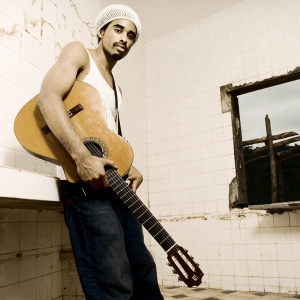
Well, I’ve just imagined, … which song i would want to hear when i am on the ground? Something that reminds me of what i came here to do. Something that boosts my energy like an African Warchant. It had to be something like “We Are The Champions.” Therefore I wrote the song “Kings Of The Field.” Gotta take charge – cause, we run things. Things don’t run we. — Patrice
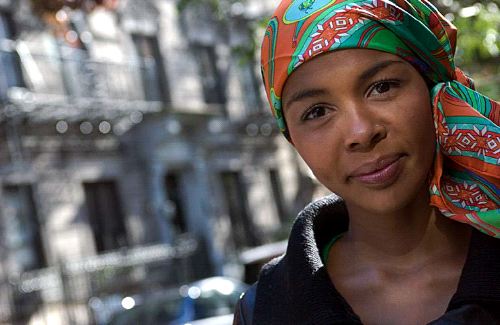
I have played football a lot in my childhood, I used to be like a tomboy. I love football – because to me football is a language everybody speaks and understands, just like music. But if footballers looked more like basketball players, I would watch football 24/7. —AyoYou can hear for yourself the different approaches to the theme of football (i.e. soccer). The male seeks power. The female seeks a relationship. Even as they are both writing about the same issue.
As a child, I saw things that children should never see. My mother was a good mother when I was very small and she really loved us, but she became addicted to heroin and drugs turn you into a different person. Sometimes she'd take us with her when she scored, sometimes she would bring her junkie friends home and take drugs in front of us, sometimes she would disappear, sometimes she'd come home and take things from the flat to pay for her drugs. —Ayo
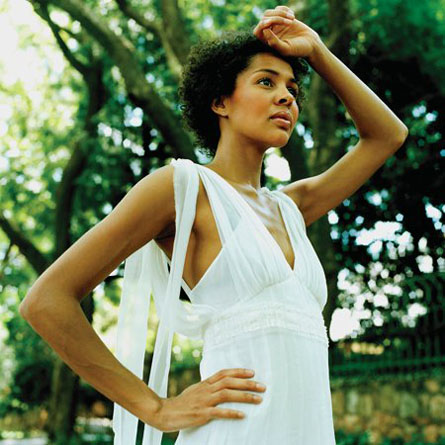 In this corner weighing in at less than a hundred pound twenty even when she was pregnant, this waif of a songstress. Her mother a Roma (commonly called “gypsy”), her father a Nigerian. Joy Olasunmibo Ogunmakin was born on September 14, 1980 in Frechen, near Cologne, Germany. Doing the reverse of many, she adopts the Yoruba translation of her first name and becomes “Ayo.”
When Ayo’s about five, she discovers her mother is a junkie. For a minute, she and the two younger of her three older siblings are taken away from their father. She is committed to foster care. He fights the legal system and eventually wins back custody when she is fourteen.
Ayo spends about one year in Nigeria while very young. Otherwise spends her winters in snow. Seen? Her dad is a DJ and studying engineering. Went to Germany to study, got married and stayed. Ayo notes he is not like most African men, who arrive, study and/or work, hook up with local women, and then eventually split, leaving babies behind. This man supported her, her older sister and two older brothers all along. Stuck through the social, legal and family turbulence and she loves him forever for that. But that’s now. Back then there was a myriad of conflicts, confusions, accusations, misunderstandings — much teeth sucking and shouting of hurtful words.
Eventually, Ayo flees like a bird. First, leaving the family home. Then, after big dust-ups with Patrice, leaves Germany, landing first in London and then on to Paris. She and Patrice reunite and Paris is where she eventually makes her mark. She and her guitar opening for soul acts like Britain’s Omar and the USA’s Cody Chestnutt. People hear her in Paris. Like her. “Enchanted” as they say. But then exotic negresses have long been the toast of gay Pareeee. Think Josephine Baker. Or, on a contemporary tip, think Dee Dee Bridgewater.
By then, Ayo had jumped difficult with a brace of impresarios who had vision of Svengali dancing in their heads. But Ayo no want to be no black Brittany Spears nor some reggae rude girl gyrating half-naked. She turns down offer after offer; producers come to her with plans, she sends them packing. What’s with this girl?
And then the debut album almost does not get made. When Ayo found out she was pregnant she was in the USA and wrote Jean-Philippe Allard, the head of Polydor France to decline producing an album. He contacted her and persuaded her to go through with it. Hits it off well with the noted producer, Jay Newland. She sends tapes. He helps select a band. They book a studio in New York for twelve days. Five days after they start they are finished. The album goes double platinum in France, Gold in Italy, Plantinum in Poland, and on and on.
In this corner weighing in at less than a hundred pound twenty even when she was pregnant, this waif of a songstress. Her mother a Roma (commonly called “gypsy”), her father a Nigerian. Joy Olasunmibo Ogunmakin was born on September 14, 1980 in Frechen, near Cologne, Germany. Doing the reverse of many, she adopts the Yoruba translation of her first name and becomes “Ayo.”
When Ayo’s about five, she discovers her mother is a junkie. For a minute, she and the two younger of her three older siblings are taken away from their father. She is committed to foster care. He fights the legal system and eventually wins back custody when she is fourteen.
Ayo spends about one year in Nigeria while very young. Otherwise spends her winters in snow. Seen? Her dad is a DJ and studying engineering. Went to Germany to study, got married and stayed. Ayo notes he is not like most African men, who arrive, study and/or work, hook up with local women, and then eventually split, leaving babies behind. This man supported her, her older sister and two older brothers all along. Stuck through the social, legal and family turbulence and she loves him forever for that. But that’s now. Back then there was a myriad of conflicts, confusions, accusations, misunderstandings — much teeth sucking and shouting of hurtful words.
Eventually, Ayo flees like a bird. First, leaving the family home. Then, after big dust-ups with Patrice, leaves Germany, landing first in London and then on to Paris. She and Patrice reunite and Paris is where she eventually makes her mark. She and her guitar opening for soul acts like Britain’s Omar and the USA’s Cody Chestnutt. People hear her in Paris. Like her. “Enchanted” as they say. But then exotic negresses have long been the toast of gay Pareeee. Think Josephine Baker. Or, on a contemporary tip, think Dee Dee Bridgewater.
By then, Ayo had jumped difficult with a brace of impresarios who had vision of Svengali dancing in their heads. But Ayo no want to be no black Brittany Spears nor some reggae rude girl gyrating half-naked. She turns down offer after offer; producers come to her with plans, she sends them packing. What’s with this girl?
And then the debut album almost does not get made. When Ayo found out she was pregnant she was in the USA and wrote Jean-Philippe Allard, the head of Polydor France to decline producing an album. He contacted her and persuaded her to go through with it. Hits it off well with the noted producer, Jay Newland. She sends tapes. He helps select a band. They book a studio in New York for twelve days. Five days after they start they are finished. The album goes double platinum in France, Gold in Italy, Plantinum in Poland, and on and on.
I gave birth to my son, and then, when he was two months old, I went into the studio and gave birth to my album. His Yoruba name is Abiola, which means luck - and he has brought me a lot of luck. I wrote "Never Been" for my son (the only song she wrote on piano)-the song is about the force he gave me to accomplish what I needed to and is a strong reason why this record got finished. I had begun this album before he was born, but after his birth, I returned to NYC and my intuition said the timing and vibe were right. —Ayo
* * *
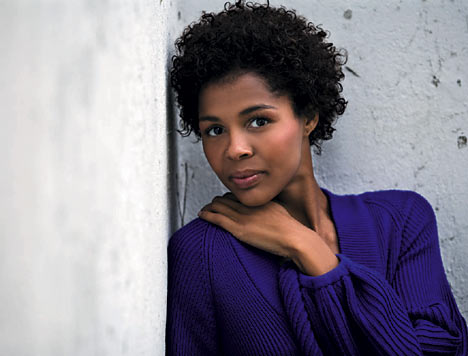
My music is very personal and very healing to me. For me, it is like a self-therapy and hopefully it will be the same for other people. When I was a child, I had to tell lies in order to protect my mother and my family. I had to hide basically everything in my life that was real. It took me a long time before I could open up and talk about it, actually I sang about it first...like I said self-therapy. I believe that we all need to express our true feelings someday, somehow otherwise we are going to lose ourselves or we may never find out who we really are! —Ayo
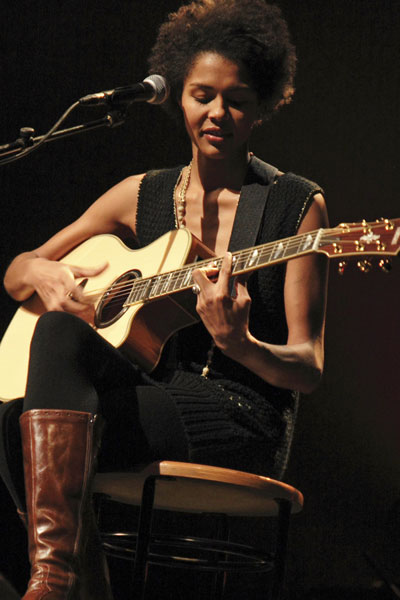 For anyone who wants to know more about Ayo, go to this website. It has beaucoup links to interviews, news articles, videos, photos, etc. It’s a major resource.
If you check out only one interview, the Acoustic Café (recording on mlive.com) is the one. In addition to a great interview there are three great solo tracks.
If you are interested in seeing videos of Ayo in performance go here.
There is only one non-original on Ayo’s debut album, “And It’s Supposed To Be Love.” It is a cover of an Abbey Lincoln song. She has done a video for the “Supposed To Be Love” in which she is almost unrecognizable. Her hair is permed, the setting is a nightclub. She is a singer who is abused by a man—obviously a nod toward the Billie Holiday legend, but also a paradigm that is too common in the African-American community. Go here and give it a “look see” (as we say in New Orleans, using one of our famous double positives), you will be glad you did, yeah.
For anyone who wants to know more about Ayo, go to this website. It has beaucoup links to interviews, news articles, videos, photos, etc. It’s a major resource.
If you check out only one interview, the Acoustic Café (recording on mlive.com) is the one. In addition to a great interview there are three great solo tracks.
If you are interested in seeing videos of Ayo in performance go here.
There is only one non-original on Ayo’s debut album, “And It’s Supposed To Be Love.” It is a cover of an Abbey Lincoln song. She has done a video for the “Supposed To Be Love” in which she is almost unrecognizable. Her hair is permed, the setting is a nightclub. She is a singer who is abused by a man—obviously a nod toward the Billie Holiday legend, but also a paradigm that is too common in the African-American community. Go here and give it a “look see” (as we say in New Orleans, using one of our famous double positives), you will be glad you did, yeah.
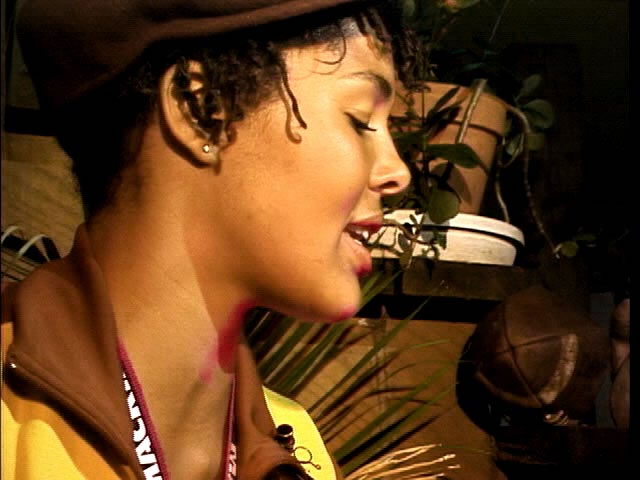 In the final analysis no matter how interesting the back story, it’s always about the music. What got to me was hearing recordings of her concerts. The studio album was cool but man, when she throws down live, she really throws down.
What I immediately notice is that she genuinely enjoys working. In one of the many interviews she talks extensively about the peace she finds when she is onstage and sharing her life experiences.
Second, she has learned to play the acoustic guitar as a rhythm instrument. She’s not just holding it for show.
Third, there is a lot of improvising going on. After you see three or four performances of the same song, you see how much difference the audience makes, how many chances she takes: once she even invited the band and the audience to help her figure out how to end a particular song. You can see her interact with her band members and with the audience. There is a charming innocence and openness that she consistently brings.
Fourth, and for me, the strongest element, she has figured out what I call an “afro-folk-funk” flow and it is awesome. You can especially hear it on the Live at the Olympia tracks.
Ayo has said that she has a brace of new material and that her future direction will get even more rhythmic. I’m looking forward to hearing that!
In the final analysis no matter how interesting the back story, it’s always about the music. What got to me was hearing recordings of her concerts. The studio album was cool but man, when she throws down live, she really throws down.
What I immediately notice is that she genuinely enjoys working. In one of the many interviews she talks extensively about the peace she finds when she is onstage and sharing her life experiences.
Second, she has learned to play the acoustic guitar as a rhythm instrument. She’s not just holding it for show.
Third, there is a lot of improvising going on. After you see three or four performances of the same song, you see how much difference the audience makes, how many chances she takes: once she even invited the band and the audience to help her figure out how to end a particular song. You can see her interact with her band members and with the audience. There is a charming innocence and openness that she consistently brings.
Fourth, and for me, the strongest element, she has figured out what I call an “afro-folk-funk” flow and it is awesome. You can especially hear it on the Live at the Olympia tracks.
Ayo has said that she has a brace of new material and that her future direction will get even more rhythmic. I’m looking forward to hearing that!
Finally, a few words about some specific selections.* * *
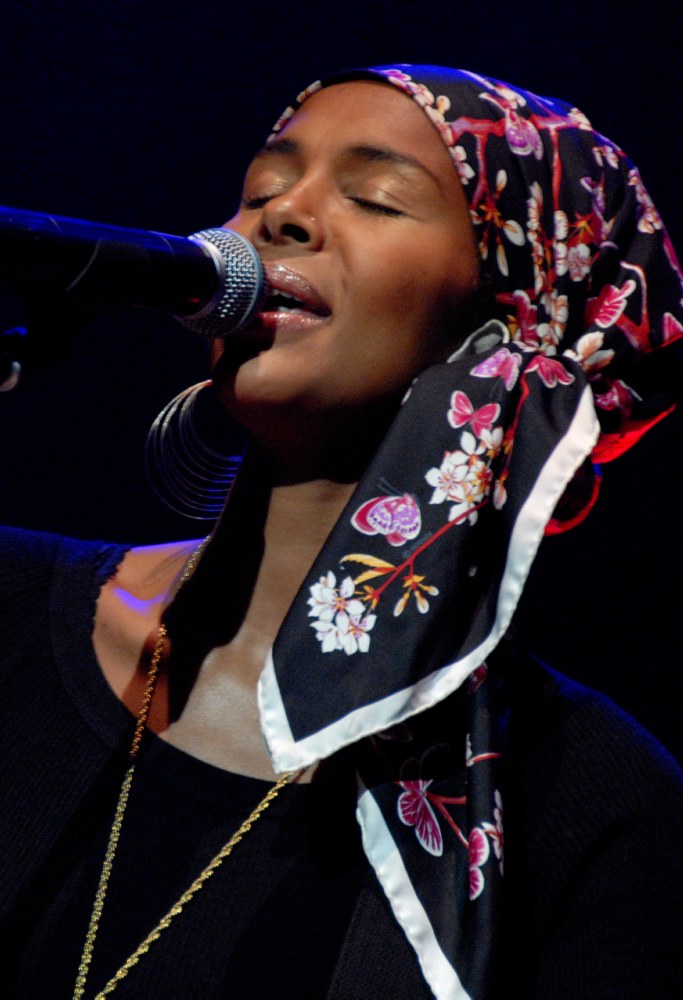 “Without You” is a tribute to her father and in the jukebox there is a solo version with voice and guitar and then followed by the studio version. You can hear the development of the sound, including the vocal work.
“Without You” is a tribute to her father and in the jukebox there is a solo version with voice and guitar and then followed by the studio version. You can hear the development of the sound, including the vocal work.
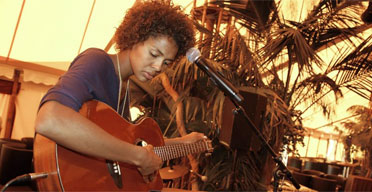 “Down On My Knees” seems quite unlike the persona of Ayo. She says she never fell on her knees, instead she played it cool and kept those feelings inside; pretended it was OK. Writing the song was her way of admitting how she actually felt and had never before expressed. I think all of us, at one time or another, in one situation or another, has been or has felt abandoned by someone we wanted to stay in our life—parent dying, lover leaving, friend betraying us, etc. Although it was born out of Ayo’s particulars, it strikes a near universal chord in all humans because it is about the rupturing of desired social relationships.
The strength of Ayo’s music is not only the performance but also the sharpness with which she outlines the ups and downs, ins and outs of the human experience.
“Down On My Knees” seems quite unlike the persona of Ayo. She says she never fell on her knees, instead she played it cool and kept those feelings inside; pretended it was OK. Writing the song was her way of admitting how she actually felt and had never before expressed. I think all of us, at one time or another, in one situation or another, has been or has felt abandoned by someone we wanted to stay in our life—parent dying, lover leaving, friend betraying us, etc. Although it was born out of Ayo’s particulars, it strikes a near universal chord in all humans because it is about the rupturing of desired social relationships.
The strength of Ayo’s music is not only the performance but also the sharpness with which she outlines the ups and downs, ins and outs of the human experience.
 “New Song” is from a broadcast of a concert in Berlin. There is no song title announced. It’s about her mother and it is stunning in its honesty. Ayo admires her mother greatly and is deeply affected by her mother’s addiction and all that goes with addiction. It’s the kind of song that almost never gets written, not to mention performed.
“New Song” is from a broadcast of a concert in Berlin. There is no song title announced. It’s about her mother and it is stunning in its honesty. Ayo admires her mother greatly and is deeply affected by her mother’s addiction and all that goes with addiction. It’s the kind of song that almost never gets written, not to mention performed.
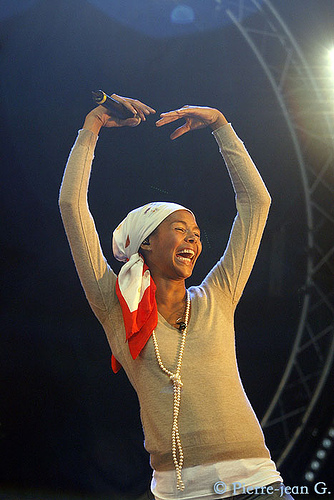 Finally, there are three versions of “Neva Been,” the song written for and to her son, Nile. Here you get a chance to witness the full development of Ayo’s sound. Moving from voice and piano, to the studio, and ending with the live performance. This is the cut that convinced me that Ayo was ready to bring the funk. The raw, uncut. The bomb funk.
Check all of the little rhythm arrangements that happen throughout. It’s all in the details and the shifts, sort of like crossover moves. She gets you going one way, then pivots in a different direction. I could not find the names of her band members anywhere online. That is regrettable because they are excellent in realizing her vision for the music.
Ayo has one album, Joyful, and one DVD, Live at the Olypmia.
Ayo. What a joy she is.
—Kalamu ya Salaam
Live vs. studio
Kalamu's reaction to Ayo is almost exactly the opposite of mine. I like her too, but I find her studio album more compelling than the live performances. It's not that I don't like the way she sounds live. It's just that so much is missing. You can't see what she's doing on stage. Sometimes, the audience is reacting to things and here we are at home with no idea what they're reacting to. Plus, the improvisational feel that Kalamu likes so much (no doubt because of his jazz leanings) sometimes makes me lose interest, like, where's this song going?
I also miss the texture of the studio recording. For example, I miss the way the bass thumps against the light, sharp sound of the acoustic guitar strings. (And no doubt, my tendency to listen for texture is because of my hip-hop leanings). Good studio recordings are produced, arranged, recorded and engineered to communicate with a listener through stereo speakers, or in their car, or through their headphones. A good engineer will listen back through speakers, trying to get the mix just right, trying to approximate what the listener is going to hear after they buy the recording.
A good live recording doesn't necessarily attempt to do any of that. In the case of the live recording, the artist is communicating with the audience who's right there in front of them. The sound of the recording isn't (and shouldn't be) foremost in their mind. The intent is totally different. It's on-the-fly communication vs. carefully planned communication. So anyway, if you like Ayo's voice and vibe (like I do) but you're not crazy for these live recordings, check out her album, Joyful. It's good.
I haven't listened enough to Patrice to have a real opinion yet. The soccer song grabbed me right away though. That one's an automatic keeper. (Sorry, y'all. I'm American. I just can't call it "football." For me, football is what we watch every Sunday here in America.)
—Mtume ya Salaam
Finally, there are three versions of “Neva Been,” the song written for and to her son, Nile. Here you get a chance to witness the full development of Ayo’s sound. Moving from voice and piano, to the studio, and ending with the live performance. This is the cut that convinced me that Ayo was ready to bring the funk. The raw, uncut. The bomb funk.
Check all of the little rhythm arrangements that happen throughout. It’s all in the details and the shifts, sort of like crossover moves. She gets you going one way, then pivots in a different direction. I could not find the names of her band members anywhere online. That is regrettable because they are excellent in realizing her vision for the music.
Ayo has one album, Joyful, and one DVD, Live at the Olypmia.
Ayo. What a joy she is.
—Kalamu ya Salaam
Live vs. studio
Kalamu's reaction to Ayo is almost exactly the opposite of mine. I like her too, but I find her studio album more compelling than the live performances. It's not that I don't like the way she sounds live. It's just that so much is missing. You can't see what she's doing on stage. Sometimes, the audience is reacting to things and here we are at home with no idea what they're reacting to. Plus, the improvisational feel that Kalamu likes so much (no doubt because of his jazz leanings) sometimes makes me lose interest, like, where's this song going?
I also miss the texture of the studio recording. For example, I miss the way the bass thumps against the light, sharp sound of the acoustic guitar strings. (And no doubt, my tendency to listen for texture is because of my hip-hop leanings). Good studio recordings are produced, arranged, recorded and engineered to communicate with a listener through stereo speakers, or in their car, or through their headphones. A good engineer will listen back through speakers, trying to get the mix just right, trying to approximate what the listener is going to hear after they buy the recording.
A good live recording doesn't necessarily attempt to do any of that. In the case of the live recording, the artist is communicating with the audience who's right there in front of them. The sound of the recording isn't (and shouldn't be) foremost in their mind. The intent is totally different. It's on-the-fly communication vs. carefully planned communication. So anyway, if you like Ayo's voice and vibe (like I do) but you're not crazy for these live recordings, check out her album, Joyful. It's good.
I haven't listened enough to Patrice to have a real opinion yet. The soccer song grabbed me right away though. That one's an automatic keeper. (Sorry, y'all. I'm American. I just can't call it "football." For me, football is what we watch every Sunday here in America.)
—Mtume ya Salaam
This entry was posted on Monday, July 7th, 2008 at 1:20 pm and is filed under Contemporary. You can follow any responses to this entry through the RSS 2.0 feed. You can leave a response, or trackback from your own site.
2 Responses to “AYO / “Neva Been””
July 9th, 2008 at 10:26 am
this is a great expozee on ayo. man this is truly good. saw a video of ayo here in nigeria,loved it but didnt know much bout her. would love to get more of this links as i am a musician myself with an international sound. thanks.
July 10th, 2008 at 1:16 pm
What a truly great and impressive article about Ayo. and her music. A pleasure to read. Words combining knowledge and wit flowing from the heart to the pen. Thank you very much.
Leave a Reply
| top |